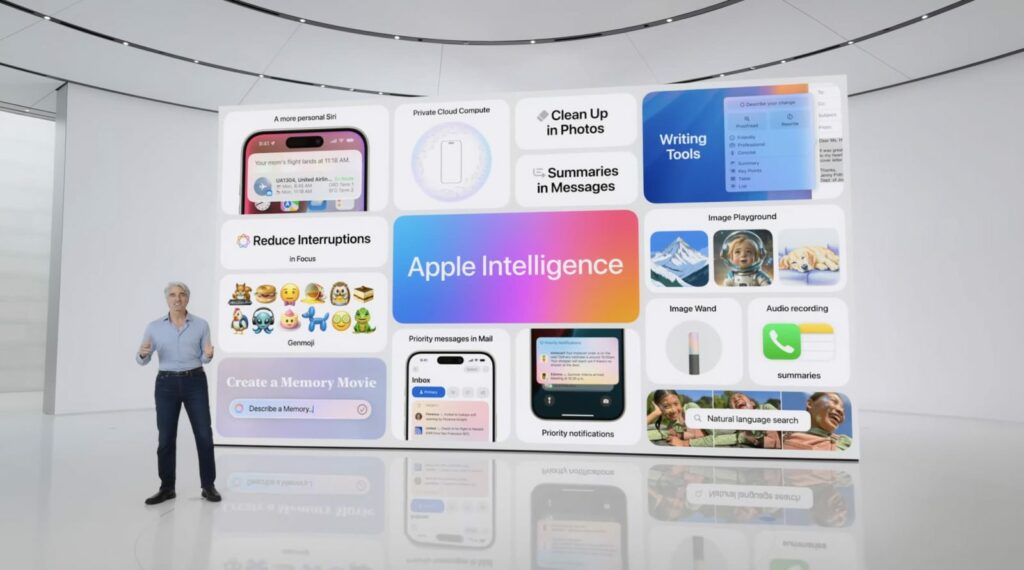Apple has announced a delay in the launch of three new artificial intelligence (AI) features, citing the need to comply with landmark European Union (EU) technology regulations. The U.S. tech giant revealed on Friday that the EU’s Digital Markets Act (DMA) necessitates ensuring compatibility of its devices with rival products and services, leading to the postponement.
AI push and new features
Earlier this month, Apple emphasized its commitment to AI through the introduction of numerous new features and software enhancements aimed at boosting its iPhone and other device sales. Among these innovations, Apple Intelligence stands out, utilizing AI to generate text, images, and other content on command. This feature is designed to be available on the iPhone 15 Pro, iPhone 15 Pro Max, iPad, and Mac with the M1 chip and later versions.

Additionally, iPhone Mirroring on MacOS Sequoia was introduced, allowing users to view and interact with their iPhone screens on Mac computers. However, the rollout of this and other AI-driven features has hit a regulatory snag in Europe.
Regulatory hurdles
Apple disclosed that Phone Mirroring, SharePlay Screen Sharing enhancements, and Apple Intelligence will not be available to EU users this year due to uncertainties surrounding the DMA. The company expressed concerns over the DMA’s interoperability requirements, which could potentially compromise user privacy and data security.
“Specifically, we are concerned that the interoperability requirements of the DMA could force us to compromise the integrity of our products in ways that risk user privacy and data security,” Apple stated in an email. The tech giant emphasized its commitment to working with the European Commission to find a solution that would allow the safe introduction of these features to EU customers.
Commitment to collaboration
Despite the delay, Apple remains dedicated to collaborating with EU regulators to address these concerns. “We are committed to collaborating with the European Commission in an attempt to find a solution that would enable us to deliver these features to our EU customers without compromising their safety,” the company reiterated.

Impact on Apple’s strategy
This delay highlights the challenges that global tech companies face when navigating varying regulatory landscapes. As Apple strives to bolster its AI capabilities and enhance user experience, it must also ensure compliance with regional laws designed to promote competition and protect consumers.
The company’s proactive approach to resolving these regulatory issues reflects its broader strategy of balancing innovation with compliance, ultimately aiming to deliver secure and advanced technology to users worldwide.
As the dialogue between Apple and the European Commission continues, users and industry watchers alike will be keenly observing how this situation unfolds and what it means for the future rollout of AI features in the EU.







